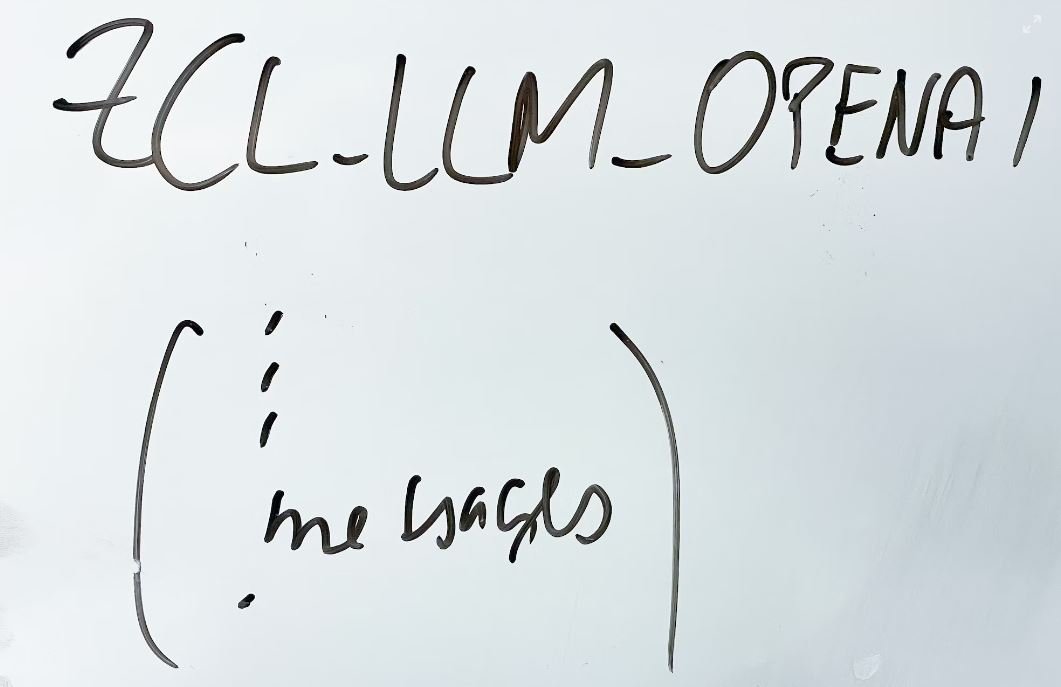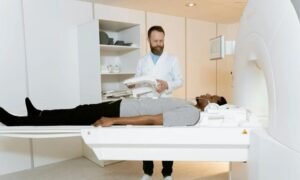Can Tesla Use J1772?
Electric vehicles have become increasingly popular in recent years, and Tesla is at the forefront of this revolution. However, many Tesla owners and potential buyers wonder if they can use the widely available J1772 charging standard for their vehicles. In this article, we will explore whether Tesla can utilize J1772 and discuss the implications for Tesla owners.
Key Takeaways
- Tesla vehicles do not come with a built-in J1772 port.
- Tesla provides adaptors to connect a J1772 charger to a Tesla vehicle.
- J1772 charging is slower compared to Tesla’s proprietary Superchargers.
- Public charging stations often offer both J1772 and Tesla Supercharger compatibility.
**Tesla vehicles, by default, do not come equipped with a J1772 port.** J1772 is a standard charging connector used by most electric vehicles other than Tesla. However, this doesn’t mean Tesla owners are unable to use J1772 charging stations. Tesla provides an adaptor, called the J1772 adaptor, that allows Tesla vehicles to connect to J1772 chargers. This adaptor serves as a bridge between the J1772 connector and the Tesla vehicle’s charging port, enabling compatibility. It’s important to note that this adaptor may need to be purchased separately.
**Although Tesla vehicles can utilize J1772 chargers, it’s important to understand the differences in charging speeds.** Tesla’s proprietary Supercharger network provides significantly faster charging compared to J1772 chargers. Superchargers have a higher power output, allowing Tesla vehicles to charge at a much faster rate. On the other hand, J1772 chargers typically offer a slower charging speed, taking longer to charge the vehicle’s battery fully. Tesla owners should consider this difference when planning their charging strategies, especially during long trips.
**One interesting point to note is the widespread availability of charging stations that cater to both J1772 and Tesla Supercharger compatibility.** Many public charging stations are now equipped with multiple connectors, including J1772 and Tesla’s proprietary connector. With these dual compatibility stations, Tesla owners can conveniently charge their vehicles even if a Supercharger is not available.
Comparing Charging Speeds
| Charging Standard | Power Output | Charging Speed (Miles of Range per Hour of Charging) |
|---|---|---|
| Tesla Supercharger | Up to 250 kW | Up to 1,000 miles |
| J1772 | Up to 19.2 kW | Up to 25 miles |
**To provide a better understanding of the charging speed differences, let’s compare Tesla Superchargers with J1772 chargers.** Tesla Superchargers have a power output of up to 250 kW, allowing for rapid charging. They can add up to 1,000 miles of range per hour of charging. On the other hand, J1772 chargers have a maximum power output of 19.2 kW and typically provide around 25 miles of range per hour of charging. This substantial difference in power output and charging speed is why Tesla owners often prefer to use Superchargers, especially when they need to charge quickly.
Charging Station Availability
| Charging Station | Connector Compatibility |
|---|---|
| Tesla Supercharger Station | Tesla proprietary connector |
| Public Charging Station | J1772 and Tesla Supercharger connectors |
**Many public charging stations now provide both J1772 and Tesla Supercharger compatibility.** This increased availability ensures that Tesla owners can find suitable charging stations without relying solely on the Supercharger network. Public charging stations that support both connectors offer greater convenience and flexibility, catering to a wider range of electric vehicle owners.
The Tesla J1772 Adaptor
**Tesla offers a J1772 adaptor that allows Tesla owners to connect their vehicles to J1772 charging stations.** This adaptor plugs into the J1772 connector and is then connected to the Tesla vehicle’s charging port, enabling charging with J1772 stations. The J1772 adaptor is compatible with all Tesla models, further enhancing the flexibility of charging options for Tesla owners.
Overall, while Tesla vehicles do not come equipped with a built-in J1772 port, Tesla offers an adaptor that enables the use of J1772 charging stations. However, Tesla’s proprietary Superchargers still provide faster charging speeds, making them the preferred choice for Tesla owners in terms of convenience and efficiency.

Common Misconceptions
Can Tesla Use J1772?
There are several common misconceptions regarding whether Tesla can use the J1772 charging standard. Let’s explore three of these misconceptions.
Misconception 1: Tesla cannot use J1772 chargers
One common misconception is that Tesla vehicles are not capable of utilizing J1772 chargers. However, this is not accurate. Tesla provides an adapter, called the Tesla J1772 adapter, that allows Tesla owners to connect their vehicles to J1772 charging stations. This adapter bridges the gap between Tesla’s proprietary charging connector and the J1772 connector.
- Tesla provides a J1772 adapter for its cars.
- Tesla owners can utilize J1772 charging stations with the adapter.
- The Tesla J1772 adapter allows for seamless connectivity.
Misconception 2: J1772 is slower than Tesla’s Supercharger
Another misconception is that J1772 chargers are significantly slower than Tesla’s Supercharger network. While it is true that Tesla’s Superchargers are faster, J1772 chargers still provide a decent charging speed for most Tesla vehicles. Most J1772 chargers have an output of around 6-7 kilowatts, allowing Tesla owners to replenish their batteries at a reasonable rate, especially for shorter trips or urban driving.
- J1772 chargers offer decent charging speed for Tesla vehicles.
- Most J1772 chargers have an output of around 6-7 kilowatts.
- J1772 charging is sufficient for shorter trips or urban driving.
Misconception 3: Tesla vehicles require an adapter for all charging
Some believe that Tesla vehicles can only charge using the Tesla Supercharger network and require an adapter for any other type of charging. This, however, is not true. Tesla vehicles come equipped with their own proprietary connector, which is compatible with the Supercharger network. However, this does not mean Tesla owners cannot use other charging stations. With the use of adapters, Tesla owners can connect to a variety of charging standards, including J1772, CHAdeMO, and CCS.
- Tesla vehicles have a proprietary charging connector for Supercharger network.
- Adapters allow Tesla owners to connect to other charging standards.
- Tesla vehicles are not limited to the Supercharger network.
In conclusion
In conclusion, it is a misconception that Tesla vehicles cannot use J1772 chargers. Tesla provides an adapter, which allows Tesla owners to connect their vehicles to these charging stations. J1772 chargers may be slightly slower than Tesla’s Superchargers, but they still offer a decent charging speed for most situations. Additionally, Tesla vehicles do not require an adapter for all charging as they are equipped with their own proprietary connector. With the use of adapters, Tesla owners can access a variety of charging standards, greatly expanding their charging options.

Background of J1772 and Tesla
Tesla is a leading electric vehicle (EV) manufacturer known for its cutting-edge technology and commitment to sustainable transportation. The J1772 is a standard charging connector used for Level 1 and Level 2 EV charging, developed by the Society of Automotive Engineers (SAE). In this article, we explore the compatibility between Tesla vehicles and the J1772 charging standard.
Tesla Model S Charging Times with J1772
The following table presents the approximate charging times for a Tesla Model S using a J1772 connector, based on the vehicle’s battery size:
| Battery Size | Charging Time (Level 2) |
|---|---|
| 75 kWh | 9-12 hours |
| 100 kWh | 12-16 hours |
Tesla Model 3 Charging Times with J1772
The table below showcases the estimated charging times for a Tesla Model 3 using the J1772 connector, depending on the battery capacity:
| Battery Capacity | Charging Time (Level 2) |
|---|---|
| Standard Range (50 kWh) | 6-9 hours |
| Long Range (75 kWh) | 9-12 hours |
Tesla Model X Charging Times with J1772
Here, we outline the estimated charging durations for a Tesla Model X using the J1772 connector, considering varying battery sizes:
| Battery Size | Charging Time (Level 2) |
|---|---|
| 75 kWh | 9-12 hours |
| 100 kWh | 12-16 hours |
Charging Adapters for Tesla Vehicles
Alongside the J1772 connector, Tesla offers a range of charging adapters to enhance compatibility. The table below depicts the various adapters provided by Tesla:
| Adapter Type | Supported Power Sources |
|---|---|
| Tesla Mobile Connector | 110V and 240V outlets |
| Tesla Wall Connector | 240V outlets |
| Tesla Supercharger | Tesla Supercharger Stations |
Tesla vs. J1772 Charging Speeds
Comparing the charging speeds between Tesla’s proprietary connectors and the J1772, we can observe the following:
| Connector Type | Charging Speed (Range Per Hour) |
|---|---|
| Tesla Supercharger | Up to 1000 miles |
| Tesla Wall Connector | Up to 44 miles |
| J1772 (Level 2) | Up to 30 miles |
Tesla Destination Charging Program
Tesla’s Destination Charging Program allows various businesses to provide Tesla-compatible charging stations for their customers. The table below highlights some notable establishments participating in this program:
| Business | Location | Number of Chargers |
|---|---|---|
| Hilton Hotels | Various locations worldwide | Over 500 |
| Sheraton Hotels | Various locations in the US | Over 150 |
Tesla Supercharger Network Expansion
As Tesla continues to expand its Supercharger network globally, more charging options become available. The table below showcases the growth of Supercharger stations over the years:
| Year | Number of Supercharger Stations (Worldwide) |
|---|---|
| 2013 | 42 |
| 2018 | 1,246 |
J1772 Adoption by Other EV Manufacturers
While primarily used by Tesla, the J1772 charging standard is also utilized by other electric vehicle manufacturers. The table below lists some notable companies and their J1772-compatible models:
| Manufacturer | J1772-Compatible Models |
|---|---|
| Nissan | Leaf, Ariya |
| Chevrolet | Bolt EV |
Economic Benefits of J1772
Besides its compatibility advantages, utilizing the J1772 charging standard offers economic benefits, as demonstrated in the table below:
| Charging Standard | Average Cost Per kWh |
|---|---|
| J1772 | $0.15 |
| Tesla Supercharger | $0.28 |
Overall, Tesla vehicles can indeed use the J1772 charging standard, thanks to the availability of appropriate adapters. The tables above provide insights into charging times, charging speeds, the Tesla Supercharger network, and other relevant aspects related to Tesla’s compatibility with J1772, enabling readers to make informed decisions regarding their EV charging preferences.
Frequently Asked Questions
Can Tesla Use J1772?
FAQs
Can Tesla vehicles use J1772 charging stations?
Is there an official Tesla adapter for J1772 charging stations?
Where can I purchase the Tesla J1772 Adapter?
Are there any limitations or compatibility issues when using J1772 with Tesla?
Can I use the J1772 Adapter to charge my Tesla at home?
Do I need the J1772 Adapter if I primarily charge my Tesla at Supercharger stations?
Can I charge a non-Tesla electric vehicle using a Tesla Supercharger?
Are there any other third-party J1772 adapters compatible with Tesla?
Can I charge my Tesla at any J1772 charging station?
Are there any specific instructions for using the Tesla J1772 Adapter?




